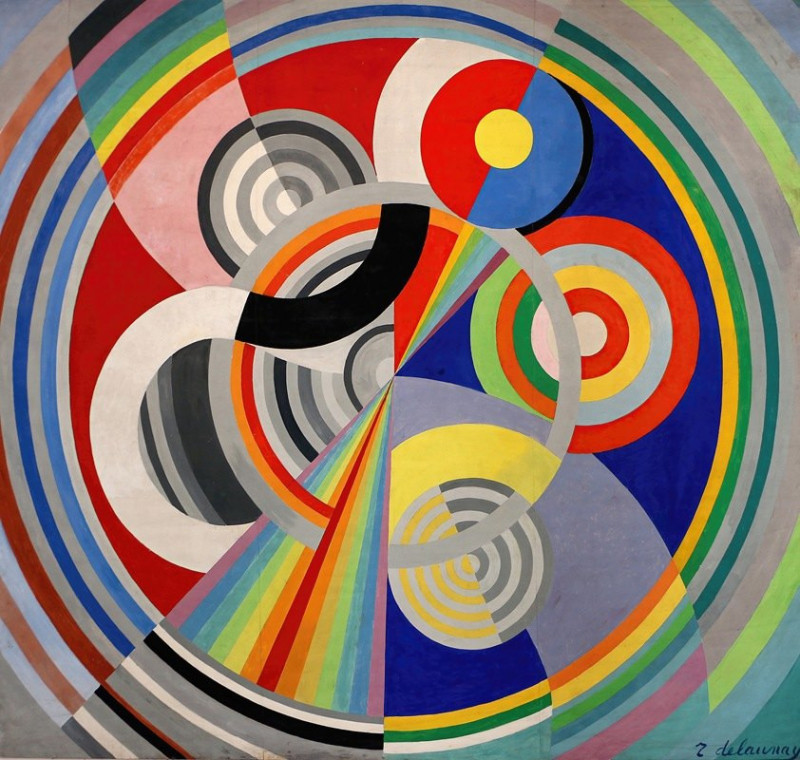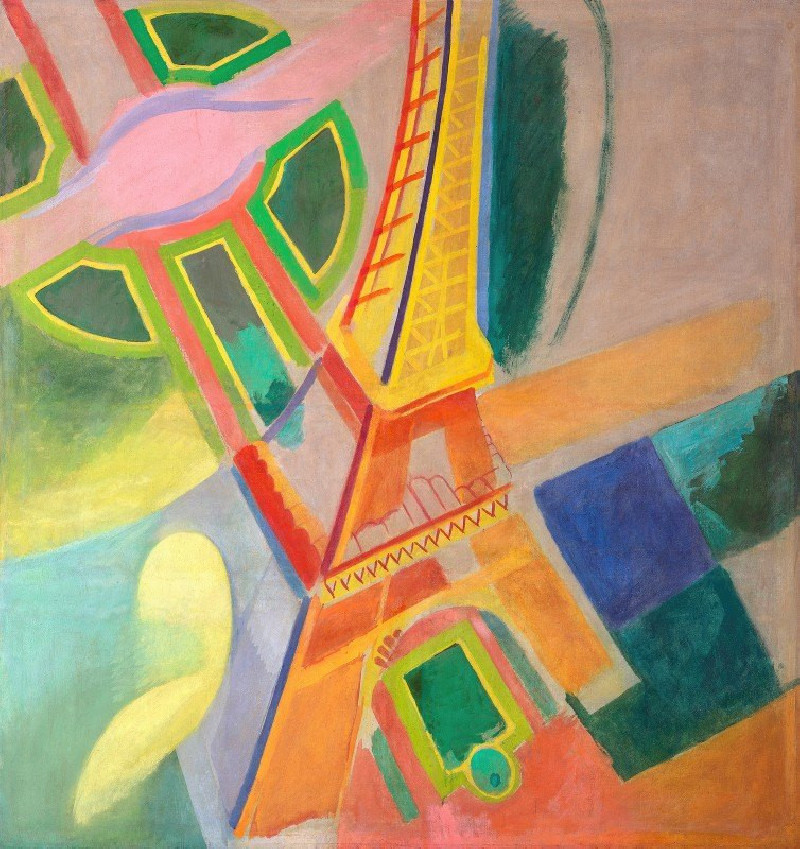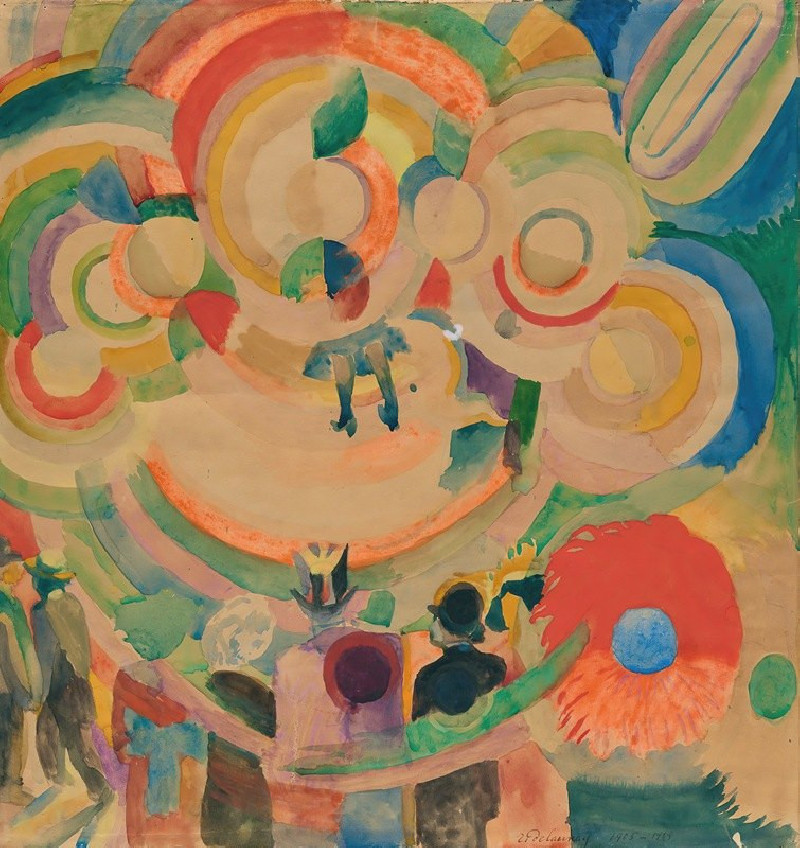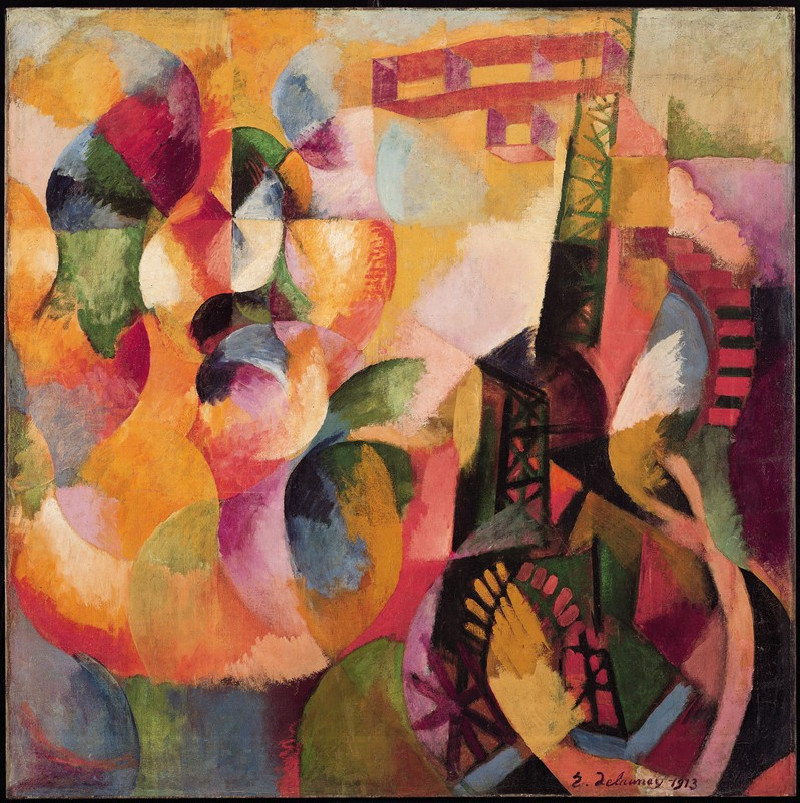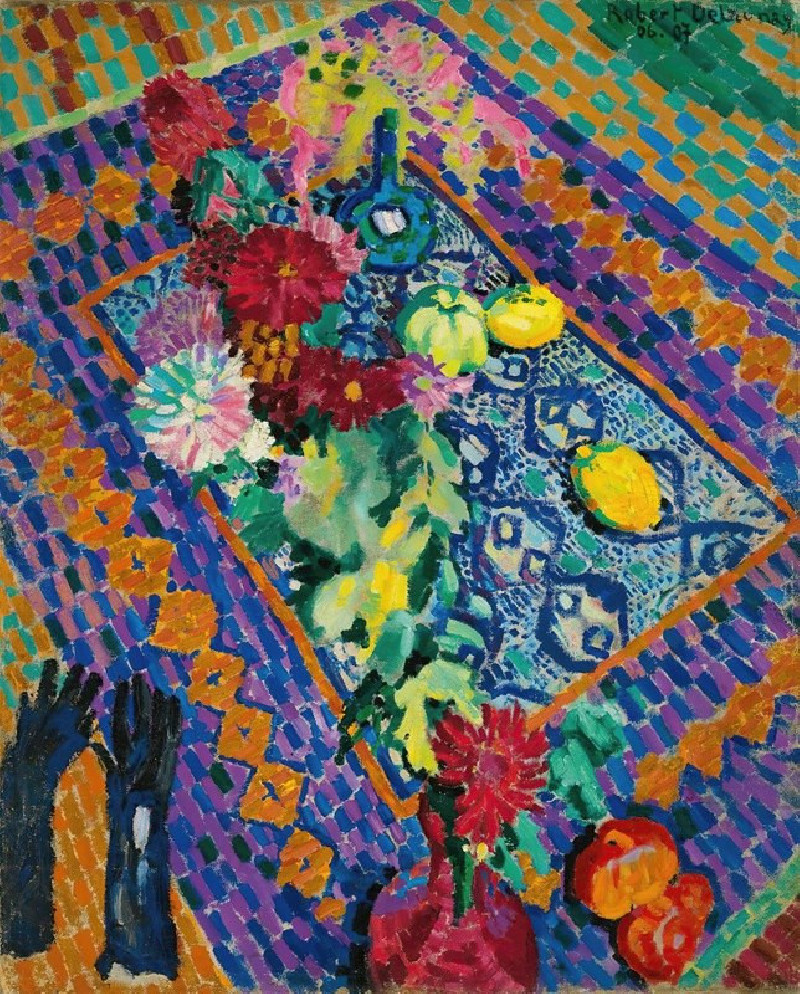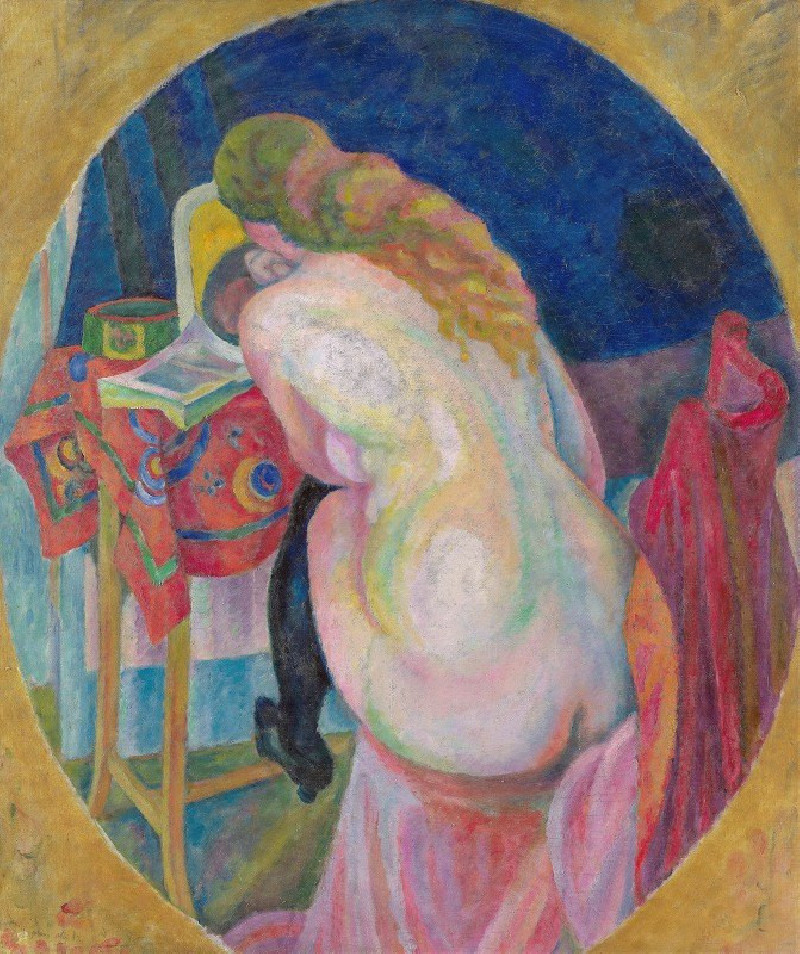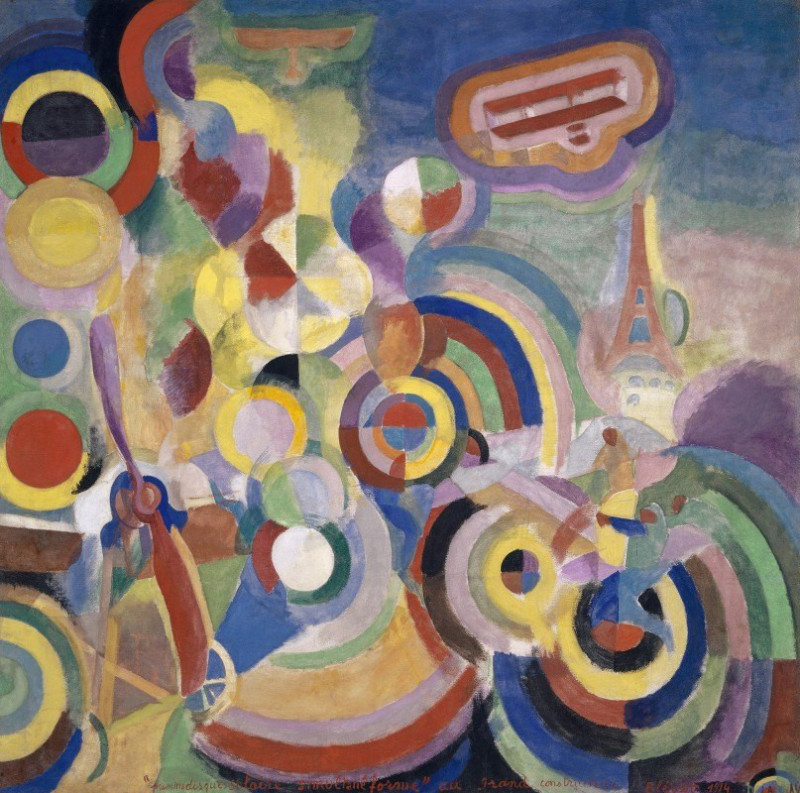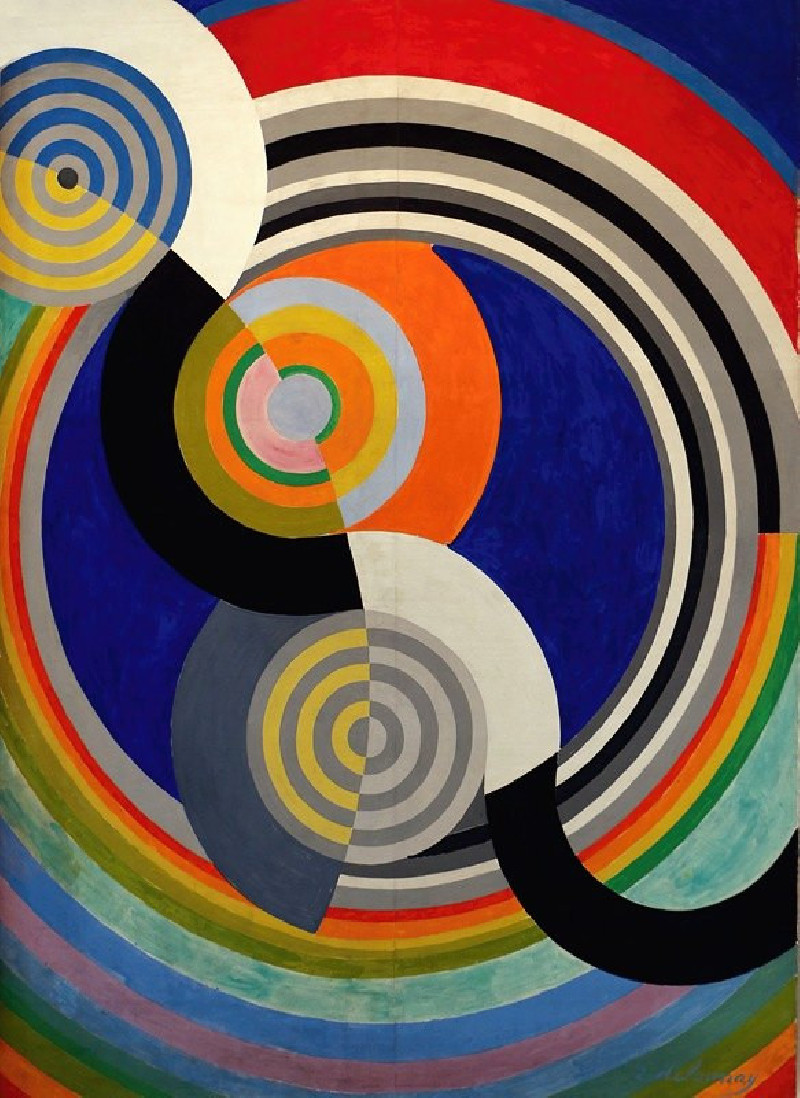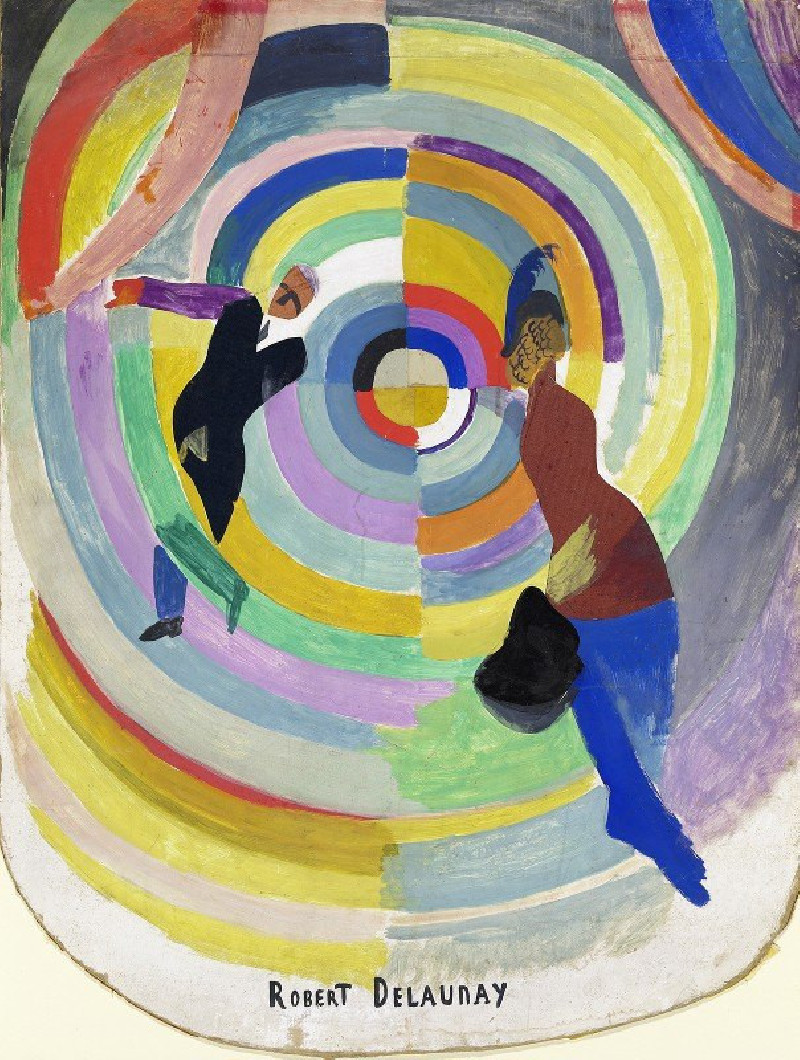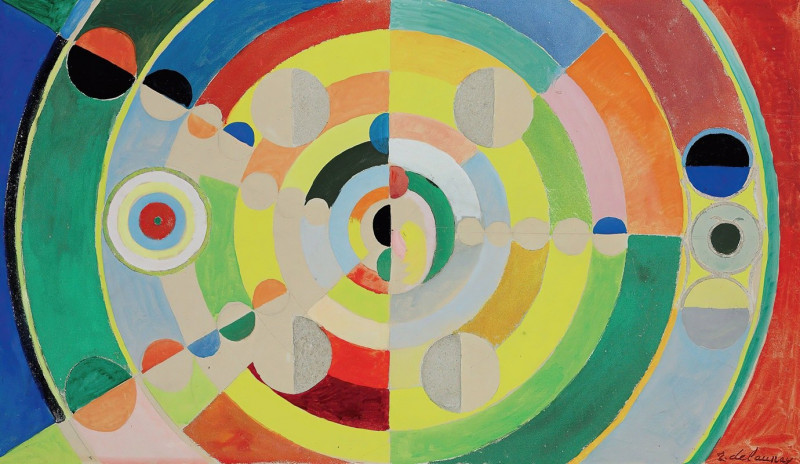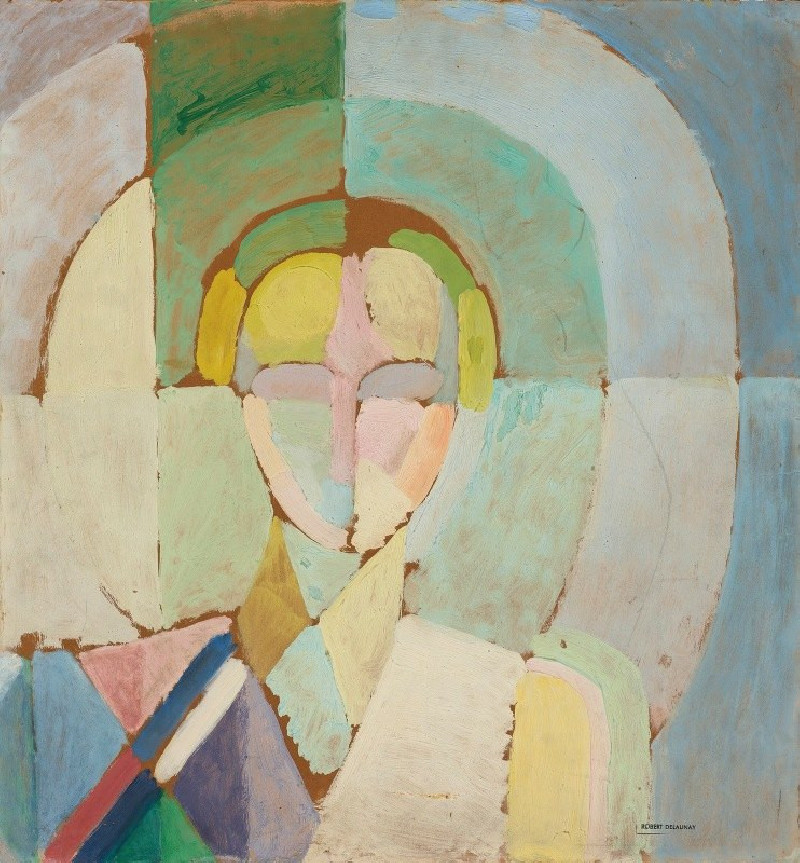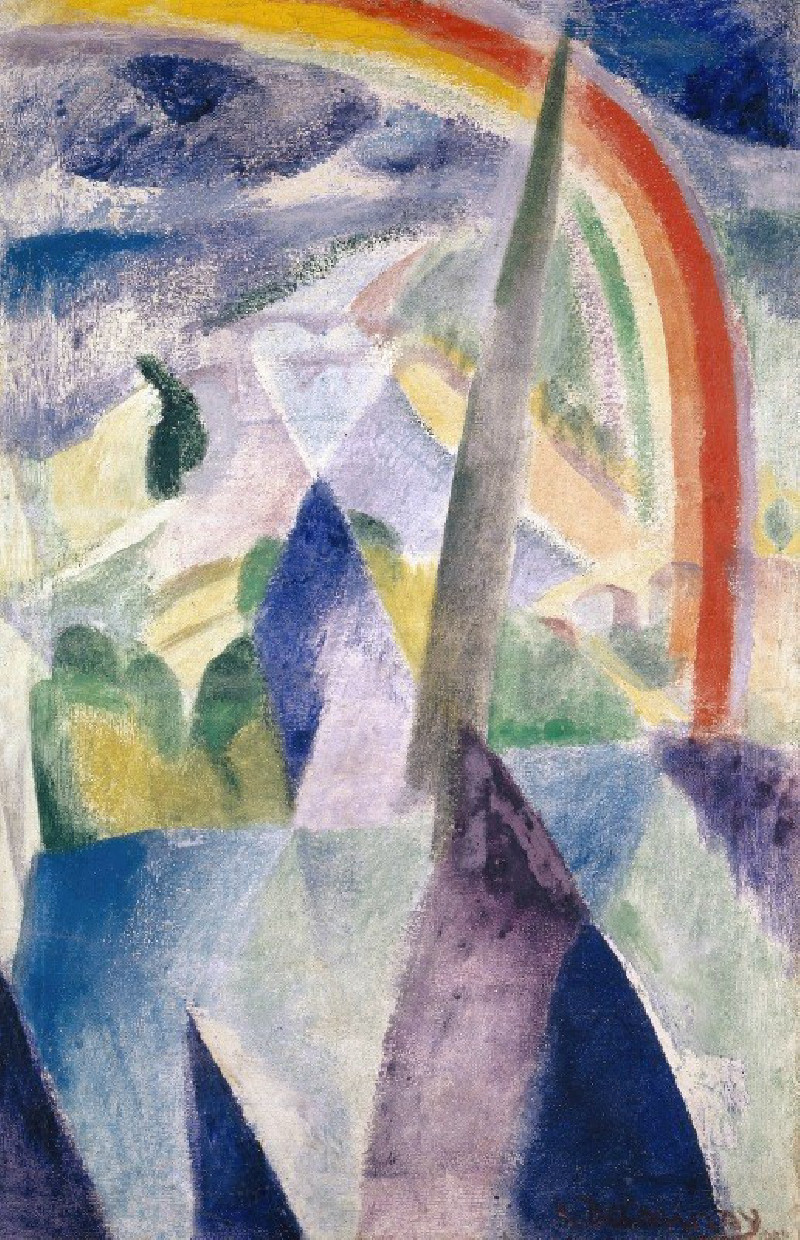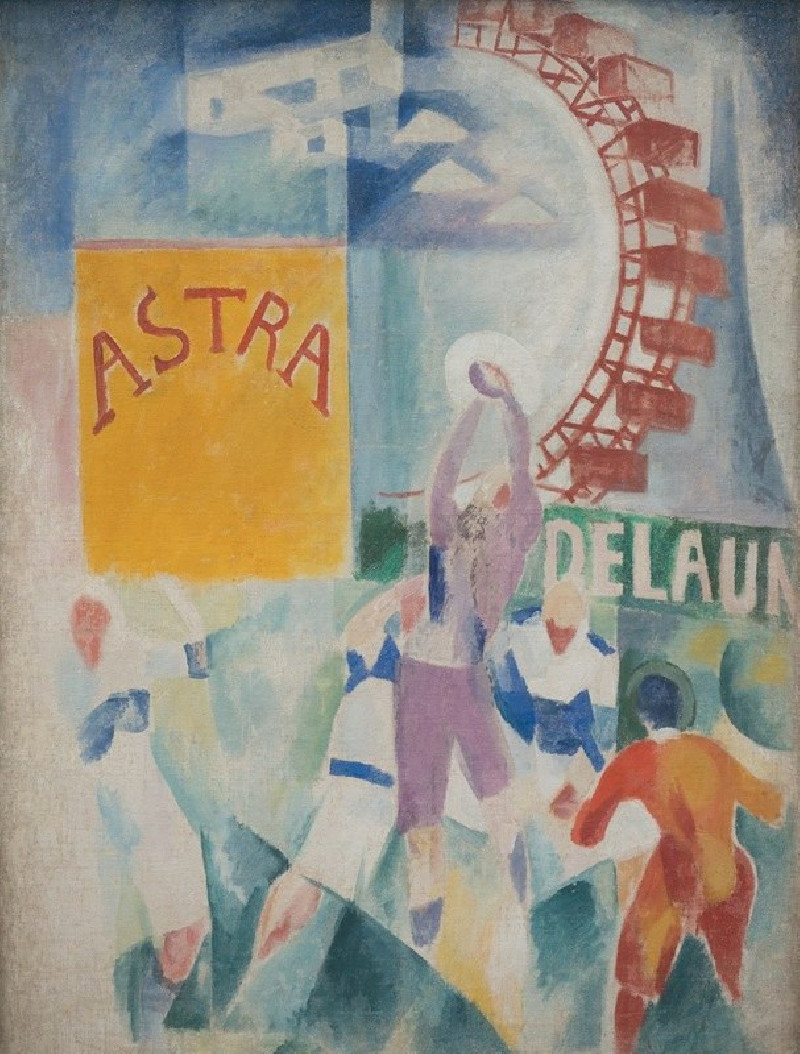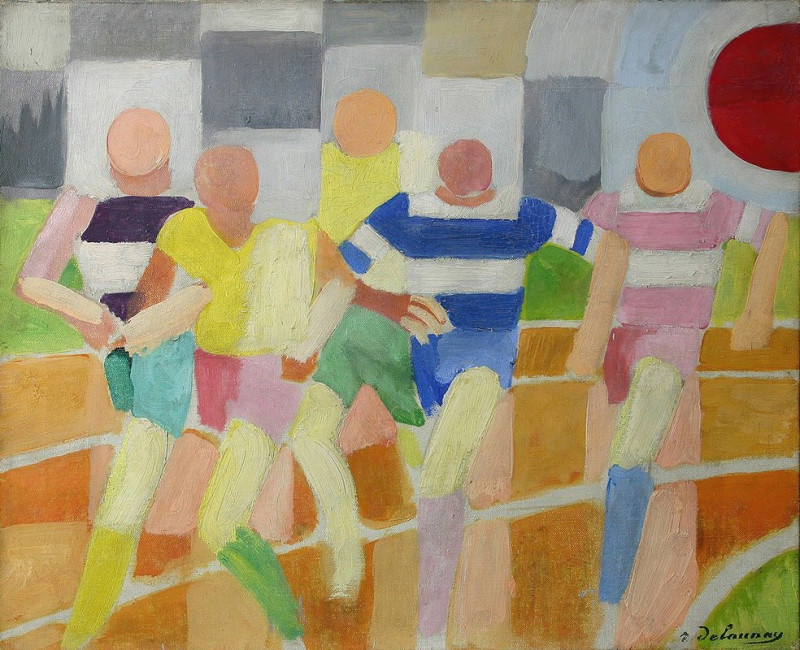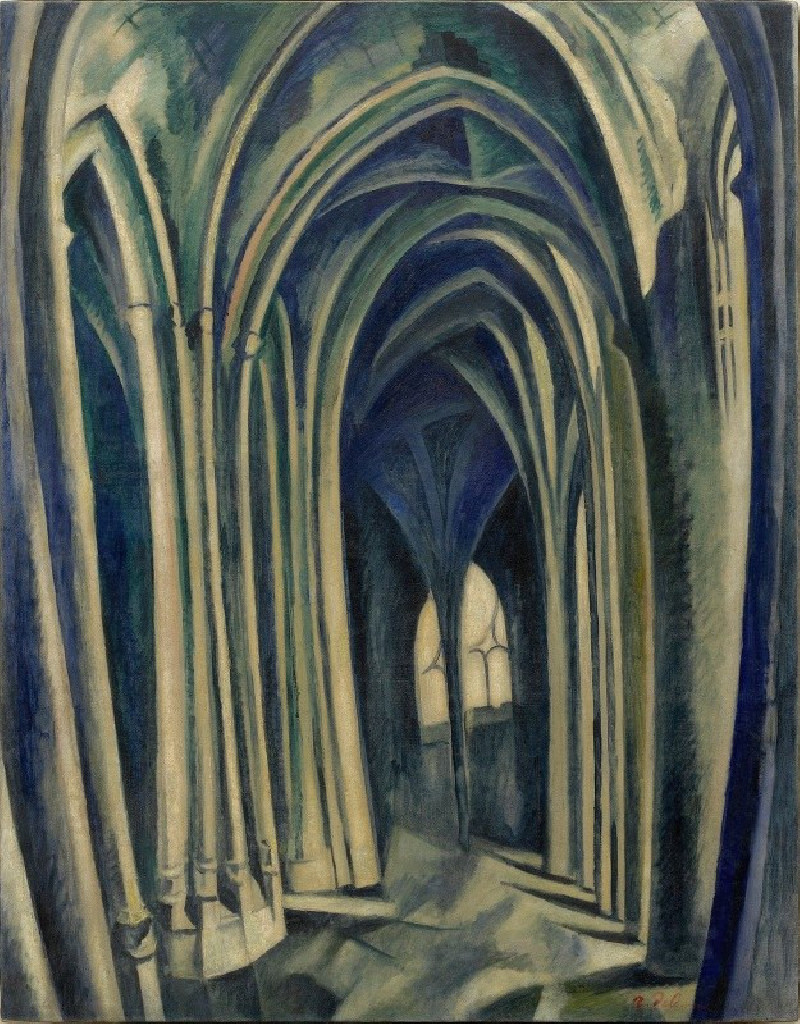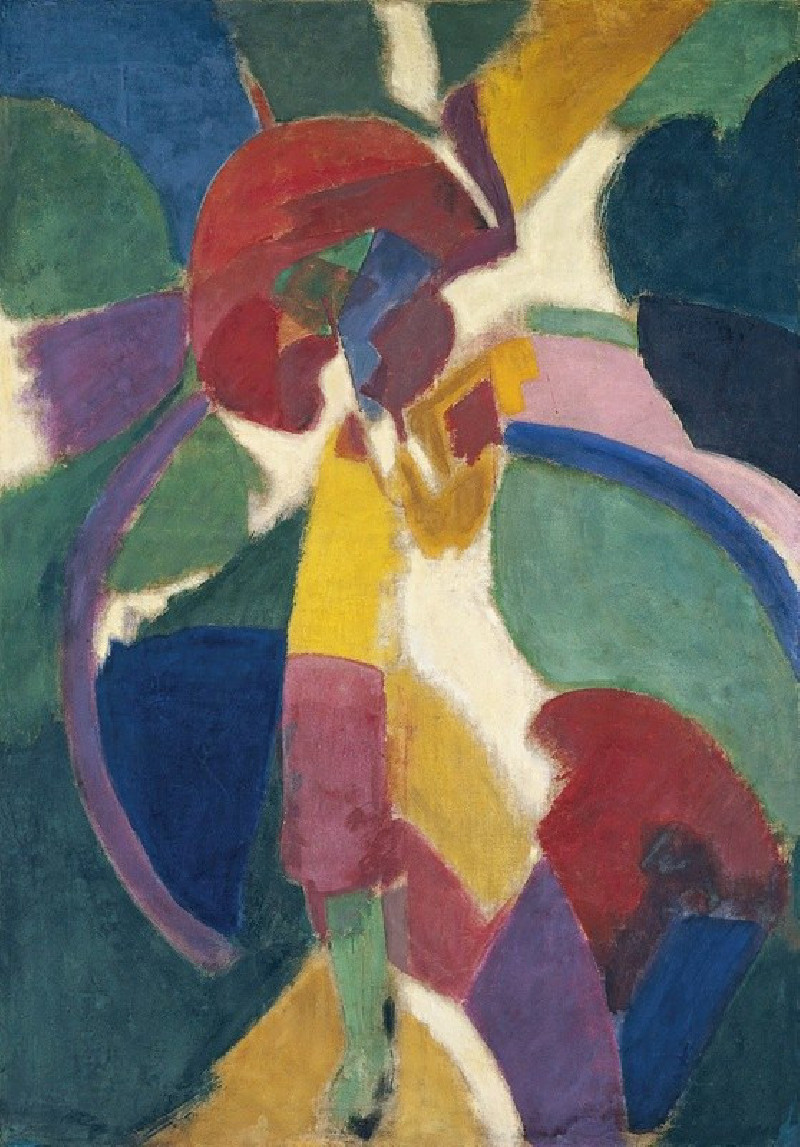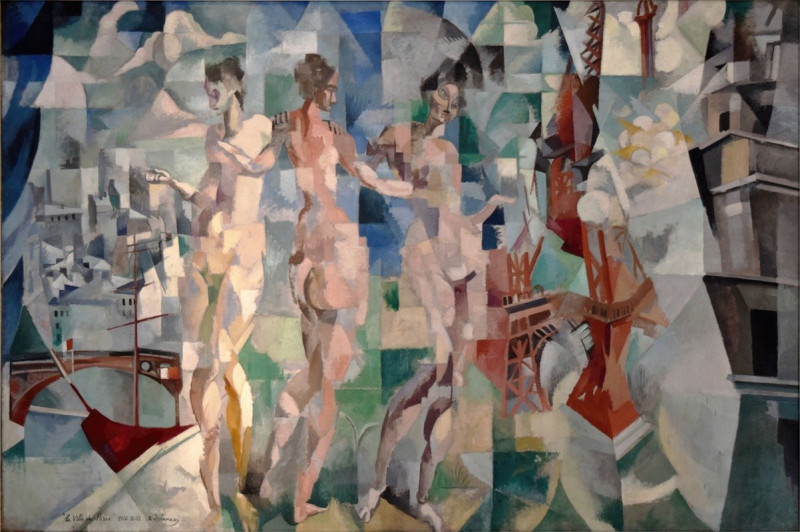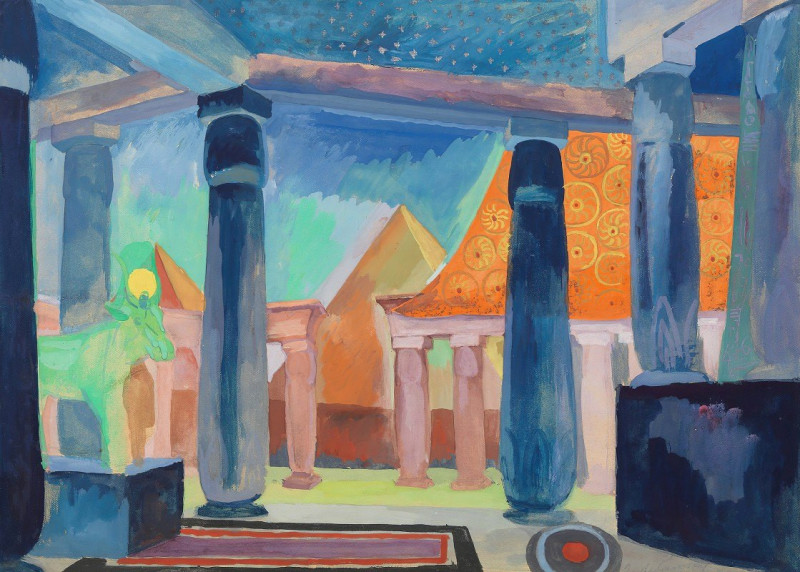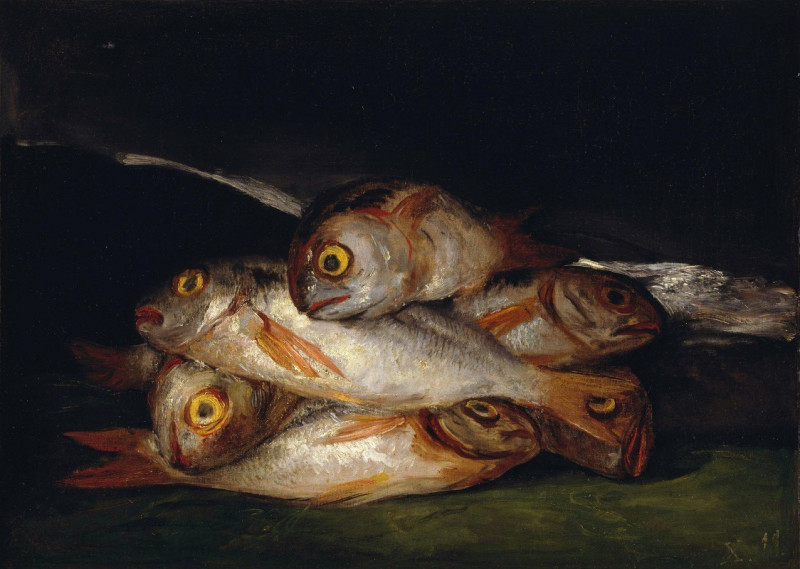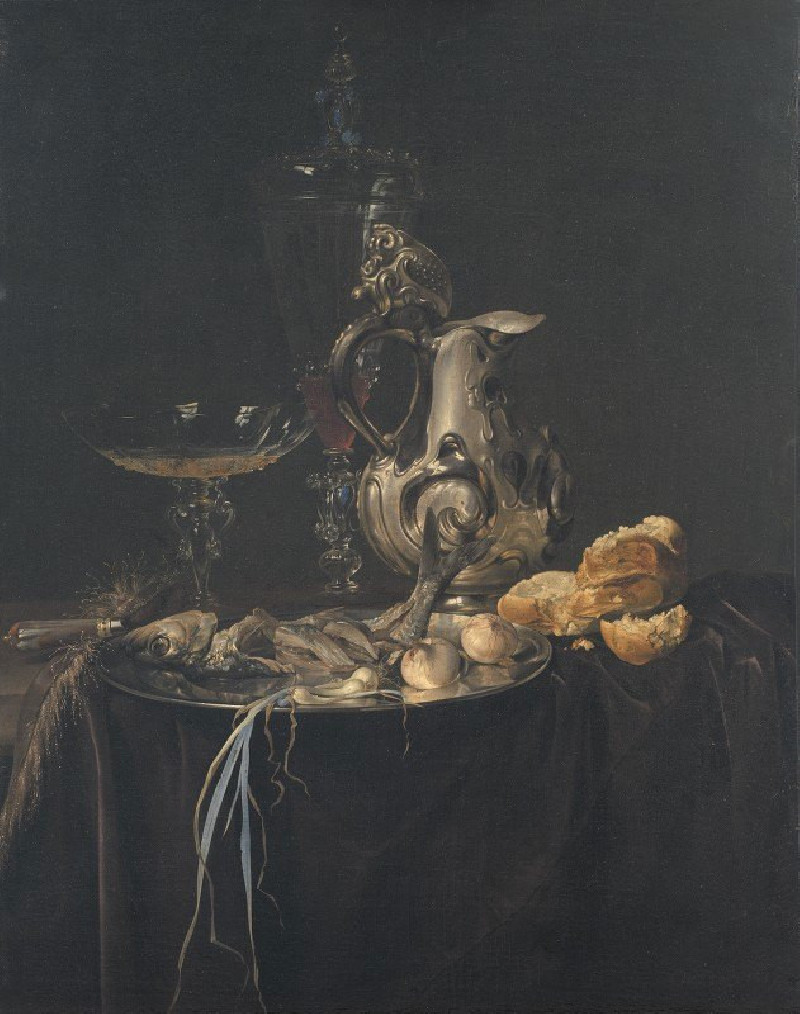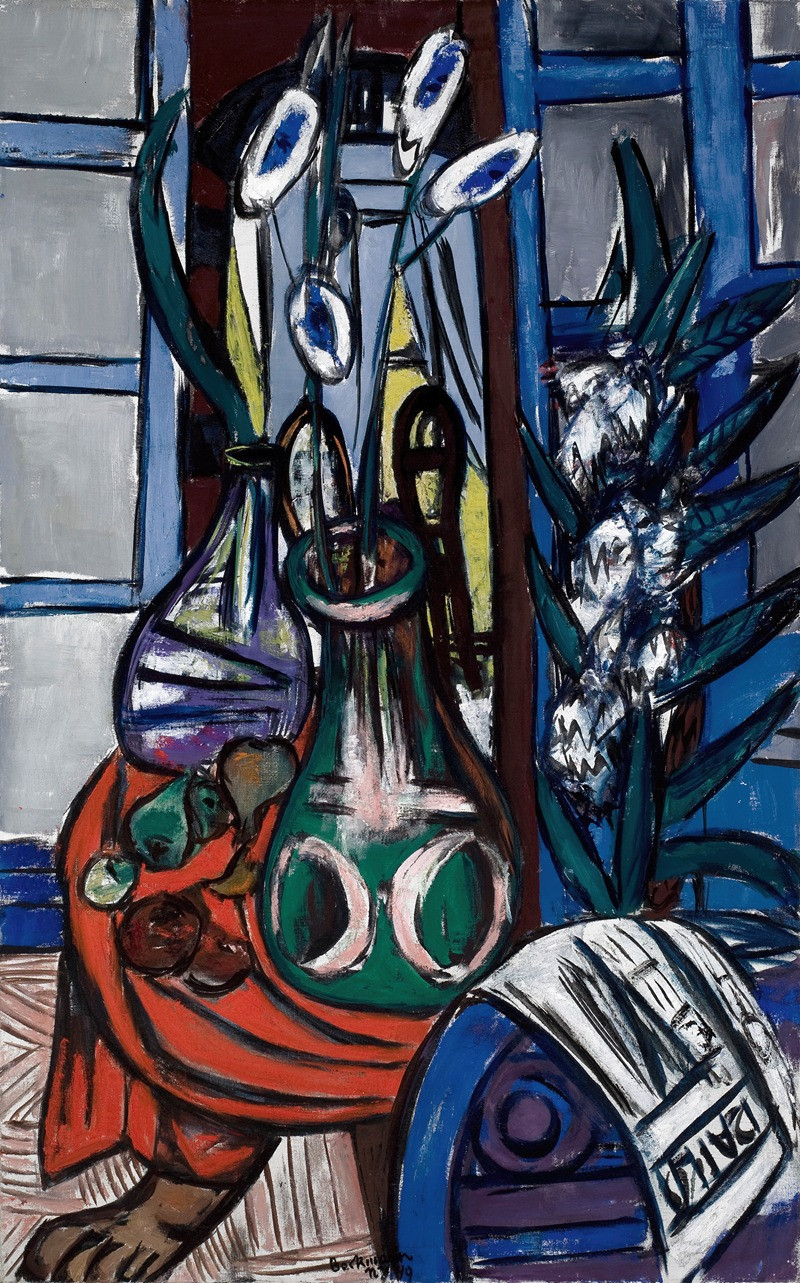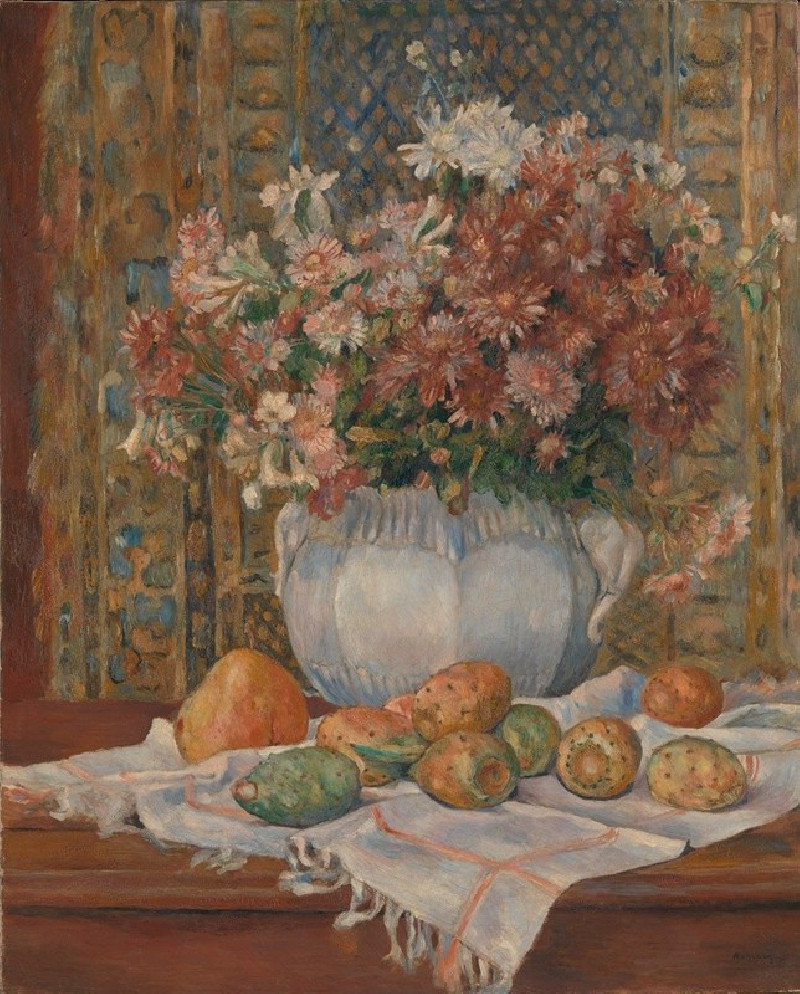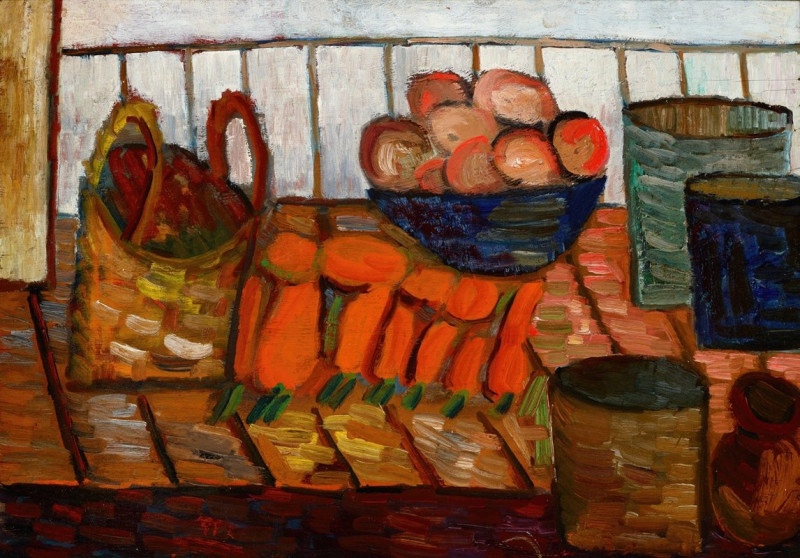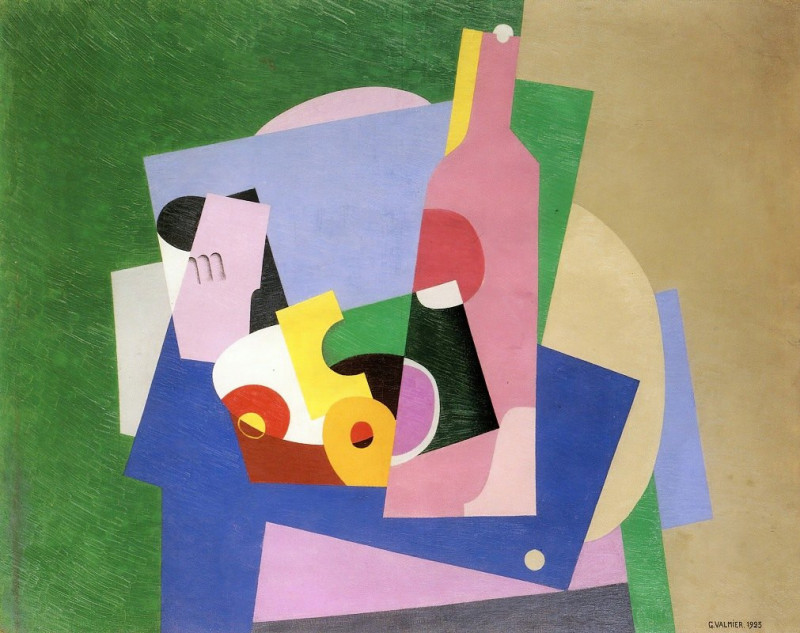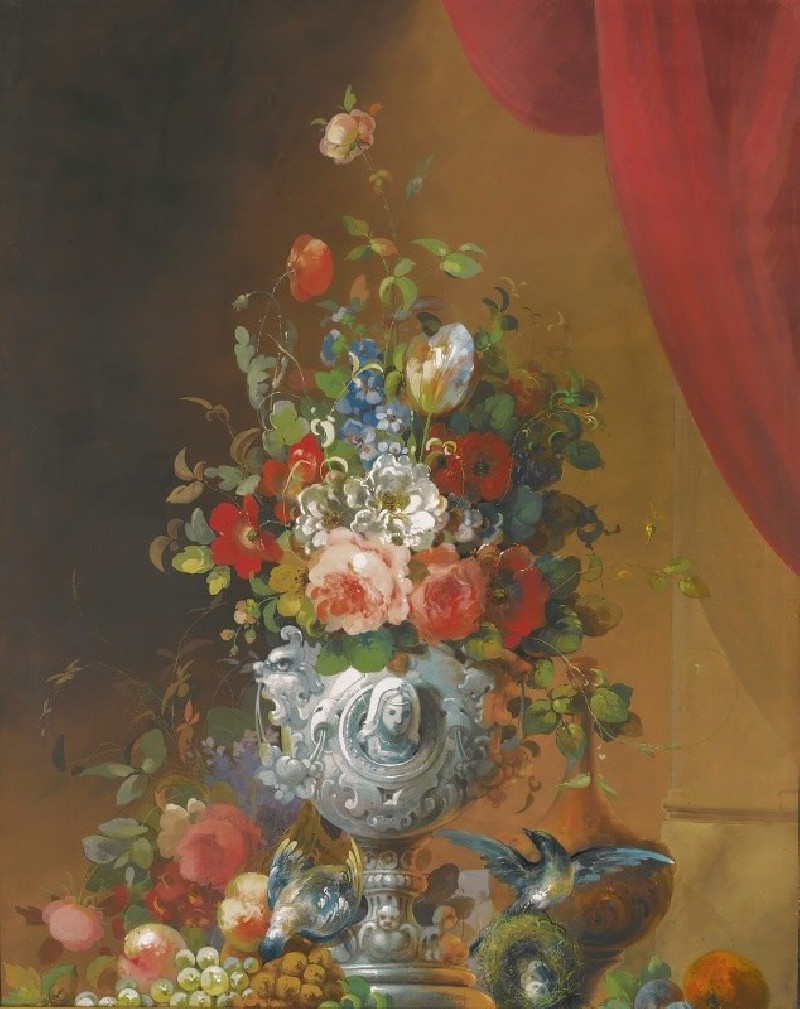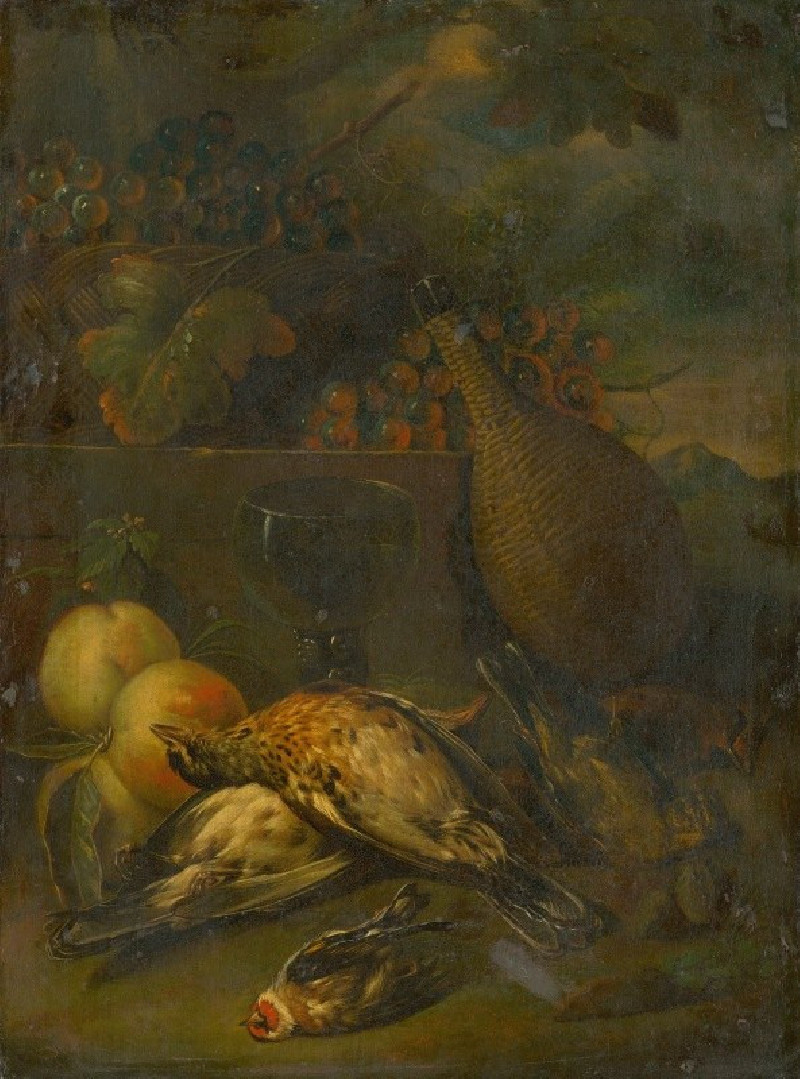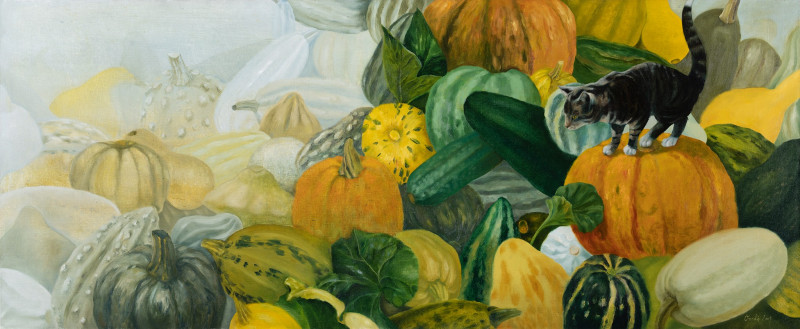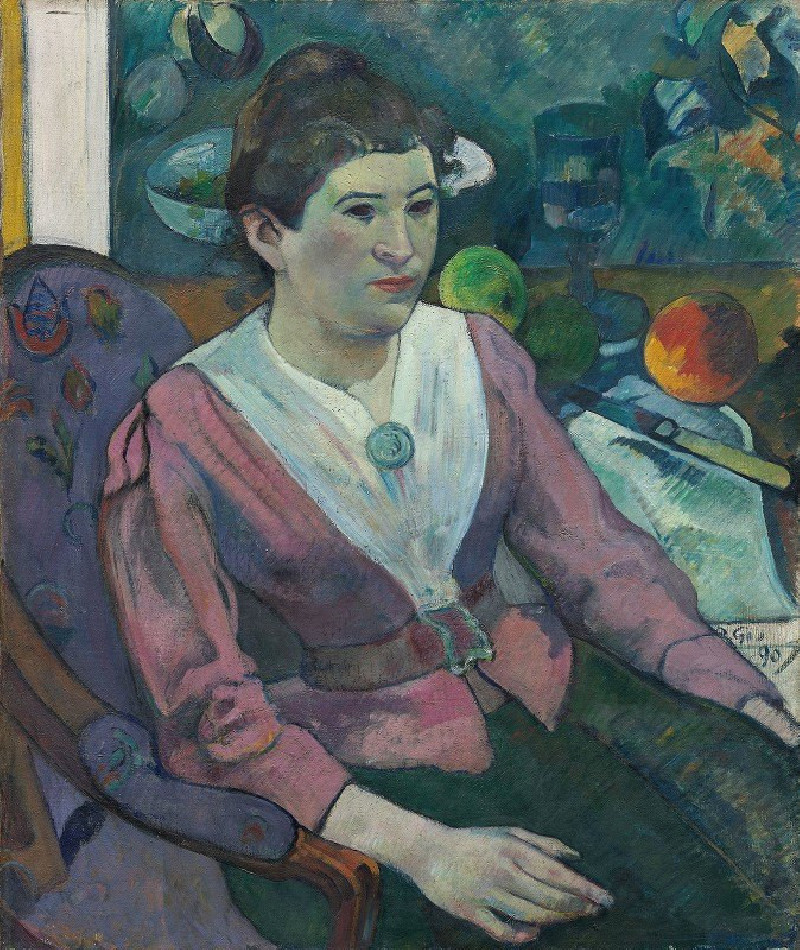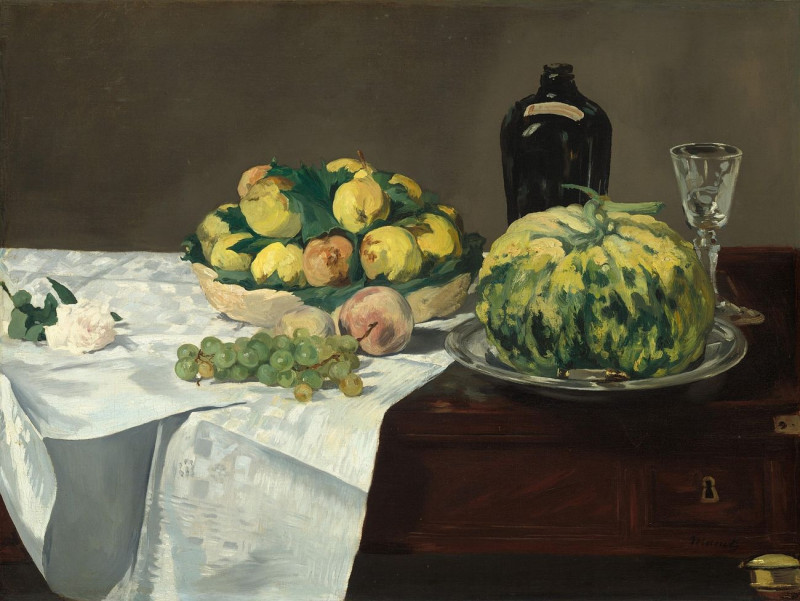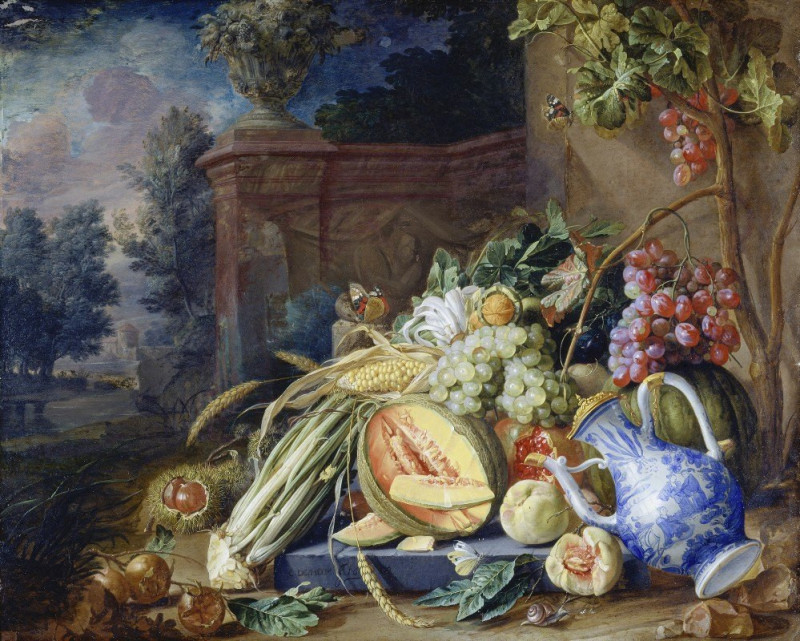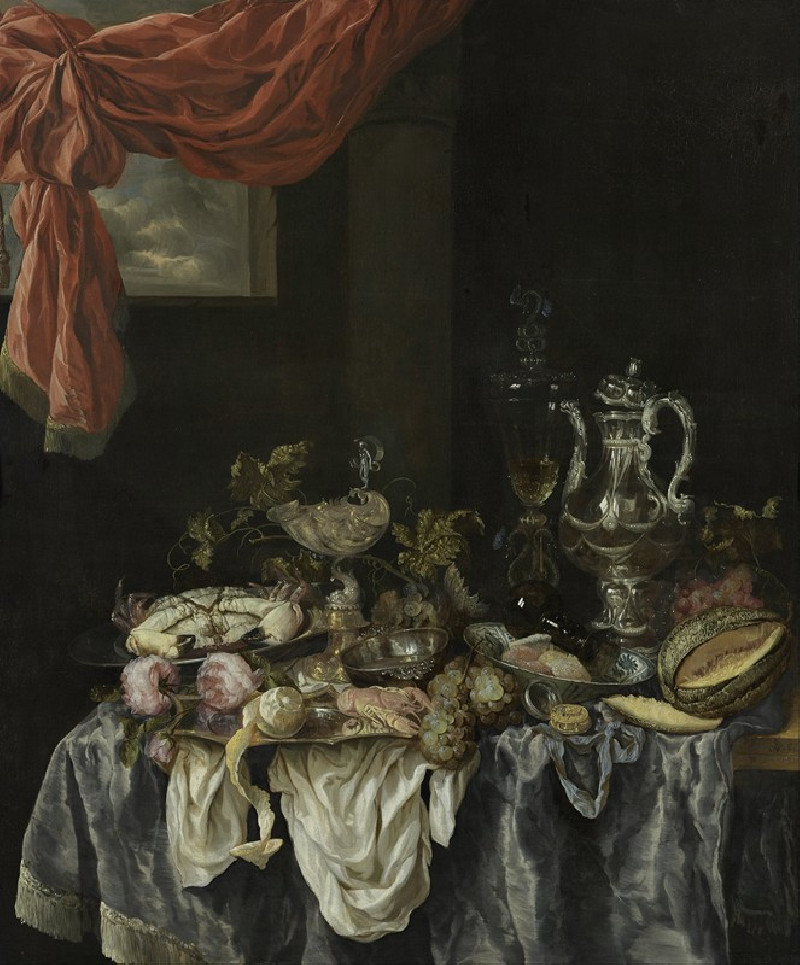Portuguese Still Life (1915)
Technique: Giclée quality print
Recommended by our customers
More about this artwork
Robert Delaunay's "Portuguese Still Life" is a compelling display of the artist's exploration of form and depth through monochromatic tones. Created in 1915, this artwork diverges from Delaunay's usual vibrant use of color, focusing instead on textures and lines to express his unique interpretation of cubism and abstraction.In this intricate pen and ink drawing, Delaunay features an array of objects on what appears to be a draped table. The scene includes what might be ceramic dishes, a cup, and a sliced open fruit, possibly a pear or apple, placed at the forefront. Each object is depicted with circular patterns and dynamic, swirling lines that draw the viewer’s eyes across the composition, suggesting both movement and harmony.The mastery of Delaunay in "Portuguese Still Life" lies in his ability to use detailed hatching and cross-hatching techniques to create a sense of three-dimensional space and volume with mere ink. The result is a rhythmic and flowing depiction that challenges the boundaries of traditional still life, making it not just a representation of objects but a vibrant, almost living scene captured on canvas.
Delivery
Returns
Robert Delaunay was a French artist who, with his wife Sonia Delaunay and others, co-founded the Orphism art movement, noted for its use of strong colours and geometric shapes.
Robert was born on April 12, 1885, in Paris. In 1902, after secondary education, he apprenticed in a studio for theater sets in Belleville. In 1903 he started painting and by 1904 was exhibiting.


